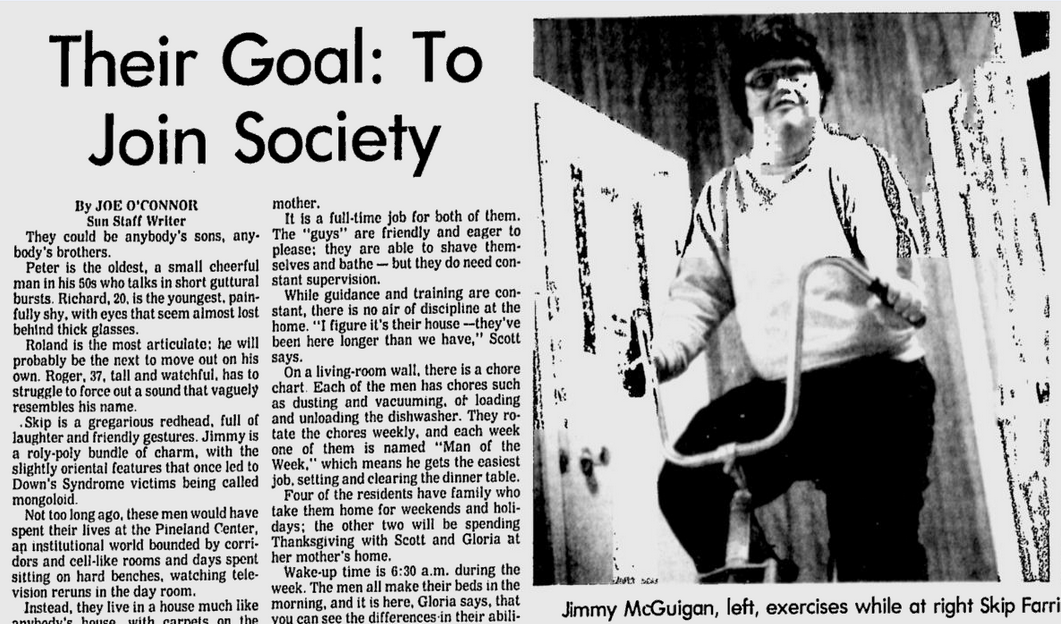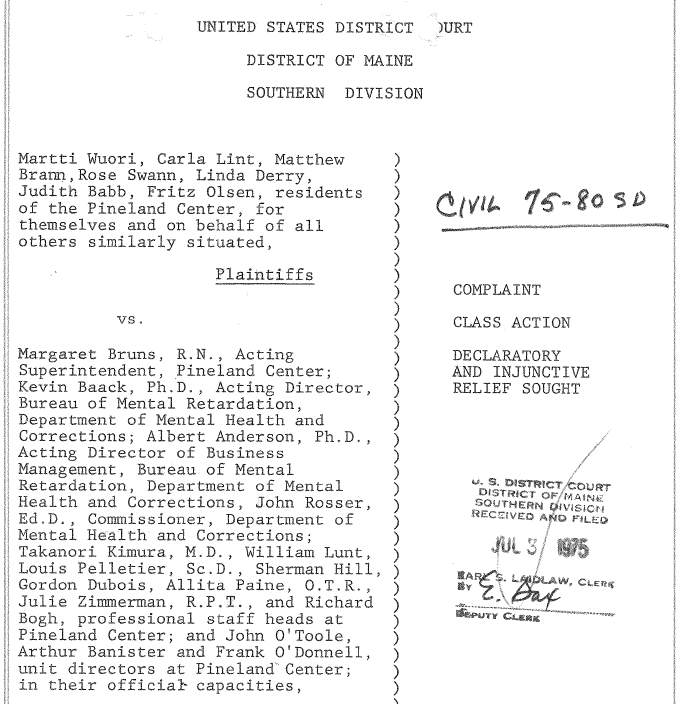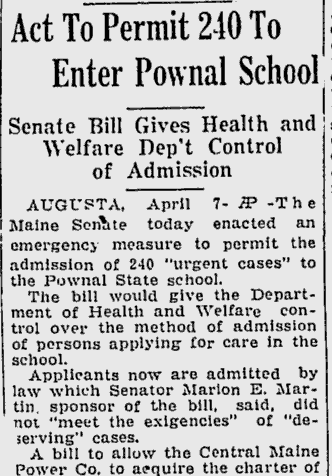In an attempt to consolidate and eliminate bureaucracy, in 2003 a bill was proposed at the Legislature to merge the Department of Human Services and the Department of Behavioral and Developmental Servicers (formerly the Department of Mental Retardation) into one department: the Department of Health and Human Services.
Born in 1802 in Hampden, Maine, Dorothea Lynde Dix became a fierce advocate for the poor and the mentally ill, who worked to create the first mental asylums in the United States.
The impulse toward institutions continues as some community-based facilities for developmentally disabled persons grow in size and the people they serve become less integrated in everyday community life and less in control of their own lives.
With public and policy sentiment turning towards the idea that people with developmental disabilities deserved the right to care in their communities and a full life with control over their choices, a new system needed to be built from the ground up.

Neville Woodruff, the lawyer who represented Pineland residents in the lawsuit, threatened new suits against Pineland saying, “They are very far behind in three major areas - staffing, quality of programs, and staff training.” Court Master Gregory was critical of the lack of improvements at Pineland as well, saying residents were “still just being kept. Life for them is purposeless."

Pine Tree Legal Assistance, the first organization in Maine to provide free legal assistance to those in poverty, filed in federal district court in Maine on July 3, 1975 the lawsuit Wuori v. Bruns, alleging that the six defendants named in the case, and the "class" – all other residents and future residents – were not getting "training and education which would enable them so far as possible to lead normal lives."
Another “responsibility” that was granted to this new department was control over people with developmental disabilities who were determined to need guardianship, and who didn’t have family members willing or able to be guardians.
“The Bureau of Mental Health shall be responsible for the direction of the mental health programs in the institutions within the department and shall be responsible for the promotion and guidance of mental health programs within the several communities of the State.”

Superintendent Bowman himself began to express the view that many of those at Pineland could and should be returned to the community: “the mission and objective of Pineland is to return to the family, the community, and to outside civilization as many of the patients as possible, after they have received the maximum training and education we can provide here.”

While changes were being made to the administrative structures of Maine’s institutions, the Pownal State School was undergoing an expansion as well. An increase in beds and buildings was championed by a new superintendent, Dr. Stephen E. Vosburgh, who was hired in 1919 and served for 18 years.
